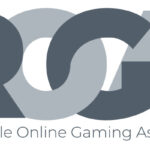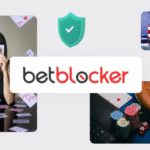Responsible Online Gaming Association establishes data clearinghouse with LexisNexis Risk Solutions

Following a request for proposal process, the Responsible Online Gaming Association announced on Tuesday the selection of LexisNexis Risk Solutions to develop and administer its data clearinghouse program.
In a release, the Responsible Online Gaming Association noted the selection was based on the company’s industry knowledge, capabilities in data security, privacy and infrastructure, and its experience providing a standardized, secure and well-governed data and analytics workflow.
“We are confident that LexisNexis Risk Solutions’ expertise will be a valuable resource to provide high quality data security and checks that help the industry better protect players expressing the need to take a break from gaming by facilitating this break more broadly across operators and jurisdictions,” said Responsible Online Gaming Association Executive Director Dr. Jennifer Shatley in a statement.
“Through this clearinghouse, when a player self-excludes through a member operator’s online gaming site, that player will be self-excluded across all ROGA member online gaming sites. Expanding player self-exclusion beyond individual operators is crucial to ensuring that there are breaks from online gaming for those that need them across the legal online gaming industry.”
Via the data clearinghouse, the Responsible Online Gaming Association will create an independent process to advance responsible gaming and consumer protection in the industry. In the first phase, LexisNexis Risk Solutions will support the creation and administration of the Responsible Online Gaming Association’s multi-state self-exclusion list across all its members.
“We are highly responsible custodians of sensitive data records and as such, this positions us well to support ROGA’s mission to advance responsible gaming across the industry,” said LexisNexis Risk Solutions Senior Director Sean Britt. “By leveraging our expertise and commitment to security and privacy, we will help create a safe, standardized system that empowers the gaming industry to make informed decisions and strengthen consumer protection.”
LexisNexis Risk Solutions has over 50 years of experience managing sensitive data and providing innovative analytics solutions. It delivers services designed to help organizations make informed decisions while upholding the highest standards for security and privacy.
Verticals:
Sectors:
Topics:
Dig Deeper
The Backstory
Why operators are moving in lockstep now
U.S. online gaming’s responsible play push did not happen in a vacuum. Over the past year, leading operators and advocacy groups have stitched together a web of initiatives aimed at standardizing guardrails, closing gaps between platforms and raising internal expectations. That work accelerated as trade groups warned that illegal gambling continues to siphon away players and tax dollars from regulated markets, sharpening the case for coordinated consumer protections that reinforce the legal ecosystem. The industry’s through line: make it easier for players to pause or set limits anywhere they bet, verify practices with independent checks, and meet customers with tools they are more likely to use.
Building a cross-operator safety net
The most concrete step to date is a shared self-exclusion system. The Responsible Online Gaming Association selected LexisNexis Risk Solutions to develop and administer a data clearinghouse that will allow a customer who self-excludes on one member site to be blocked across all member platforms. In announcing the project, the group said LexisNexis was chosen for its data security and governance credentials and its track record building standardized workflows. The first phase will focus on a multi-state list spanning all ROGA members, creating an “independent process” to advance consumer protection across jurisdictions. Read more on the clearinghouse plan and vendor selection in ROGA’s decision to tap LexisNexis.
DraftKings Chief Responsible Gaming Officer Lori Kalani has framed the effort as a practical response to how customers actually move between apps. Today a self-excluded user can sign up elsewhere in minutes. In remarks at an industry conference, Kalani said shared self-exclusion would stop that hopscotch among participating brands, even if it cannot touch offshore sites. Her argument underscored ROGA’s purpose: turn best practices into common practice and reduce fragmentation that undermines safeguards. Her wider agenda and DraftKings’ product tweaks are detailed in Kalani’s interview on building tools customers actually use.
Turning guidelines into independent benchmarks
Standards are only as credible as their oversight. To add third-party validation, ROGA partnered with the Responsible Gambling Council to build a U.S. certification program for online operators. The framework will evaluate practices such as self-exclusion, marketing, staff training and player support tools, with the aim of pushing beyond regulatory minimums and keeping pressure on continuous improvement. RGC brings decades of experience running RG Check, a recognized accreditation program for land-based and online operators. ROGA says all members will be assessed once the new framework is complete, and it plans to outline how nonmembers can participate. The full scope is in ROGA’s certification tie-up with RGC.
The certification track complements the clearinghouse. While shared exclusion builds a safety net, independent assessment makes it harder to declare victory without proof. Together they are meant to create both horizontal consistency across operators and vertical accountability within each one.
Meeting players where they are, on every device
Technology choices are converging as well. ROGA’s collaboration with BetBlocker promotes free, anonymous software that lets consumers restrict access to more than 118,000 gambling sites and 1,500 apps across devices for set periods. The tool covers both regulated and unregulated domains, making it a backstop where legal controls end. Under the partnership, ROGA will feature BetBlocker prominently and work with its eight member operators to weave access into customer flows. The group says scheduling features coming to the app will let players preplan cooldown periods, aligning with a push toward personalized controls. See details in ROGA’s BetBlocker integration plan.
Operators are also rebranding responsible play features to increase engagement. DraftKings has leaned on a “My Stat Sheet” dashboard that shows time on platform and net wins and losses without labeling the feature as a safeguard. Kalani’s view is that many customers resist “responsible gaming” terminology but will use neutral, data-rich tools that fit how they track other parts of life. That design philosophy reflects a broader industry shift from compliance checklists to behaviorally informed nudges. More on that approach is in DraftKings’ responsible gaming roadmap.
Training front lines to spot risk early
Culture and training are the other legs of the stool. EPIC Global Solutions teamed up with daily fantasy operator Underdog to run workshops for customer-facing staff on identifying and responding to signs of harmful play. The sessions, led in part by former athletes who have firsthand experience with gambling-related harm, emphasize communication techniques and case-based learning. Underdog says the program is part of embedding responsible gaming as an everyday discipline, not a back-office function. The effort reflects a broader recognition that product limits and data science need human judgment to be effective. The initiative is outlined in EPIC’s training collaboration with Underdog.
As certification takes hold, programs like these may become table stakes. Independent reviews will look for evidence of training, feedback cycles and how operators adapt when red flags surface. That feedback loop is what turns policy into practice.
The illegal market sets the stakes
The urgency behind these moves is sharpened by the size of the illegal market. The American Gaming Association estimates Americans bet about $674 billion annually with offshore sites, illegal sportsbooks and unregulated skill games, generating nearly $54 billion in revenue for illicit operators and costing states an estimated $15.3 billion in taxes. The association says illegal online casino revenue jumped 38% since 2022 and the share of online players using only legal sites fell from 52% to 24%. The topline numbers and enforcement call to action are summarized in AGA’s analysis of tax losses tied to illegal gambling.
For legal operators, those figures are more than a policy talking point. They are a reminder that consumer trust is a competitive asset. A strong responsible gaming posture can differentiate regulated platforms, reassure lawmakers and encourage consistent rules that allow scale. ROGA’s clearinghouse and certification program aim to make that posture verifiable, while tools like BetBlocker and reimagined dashboards give players control in ways they are likely to adopt. Training initiatives help catch issues sooner, building the case that the legal side can grow without compromising safety.
The through line is convergence. Operators that fight fiercely for market share are aligning on guardrails, recognizing that shared standards can expand the pie and keep customers inside the regulated system. The next tests will be execution, data protection in the clearinghouse and whether certification raises the floor meaningfully. If those pieces hold, the industry will have a cleaner story to tell regulators as it pushes back against the unchecked growth of offshore sites.








